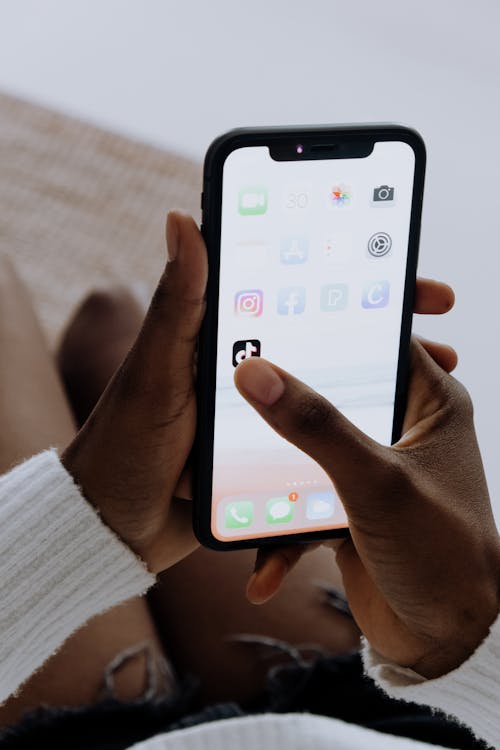The Psychology of Mobile and Social Media Addiction: Understanding the Impact and Finding Balance
1/10/2025

The rise of smartphones and social media platforms has revolutionized communication and information access, but it has also introduced significant psychological challenges. Mobile and social media addiction, characterized by excessive and compulsive use of these technologies, has become a growing concern. Linked to mental health issues, decreased productivity, and strained relationships, this phenomenon necessitates understanding its mechanisms and exploring strategies for maintaining a healthier digital lifestyle.
Understanding the Addiction Mechanism
Social media platforms are meticulously designed to capture and hold users’ attention. By leveraging behavioral psychology, features such as notifications, likes, and infinite scrolling stimulate the brain’s reward system. Research published in Computers in Human Behavior (2019) highlights dopamine’s role in reinforcing compulsive behaviors. Every interaction that elicits positive emotions releases dopamine, creating a reward loop that encourages continued use, leading to habitual checking and an inability to disengage.
Beyond social media, mobile addiction includes compulsive use of apps, games, and messaging platforms. The concept of nomophobia—the fear of being without a mobile device—exemplifies the psychological dependence on smartphones. A study in Cyberpsychology, Behavior, and Social Networking (2017) found nomophobia linked to increased anxiety, lower self-esteem, and diminished focus on tasks. The ubiquity of smartphones enables this dependency, filling idle moments with digital distractions.
Psychological Impacts of Mobile and Social Media Addiction
Mental Health Challenges
Excessive screen time is associated with anxiety, depression, and sleep disturbances. A study in JAMA Pediatrics (2018) found adolescents spending over three hours daily on social media faced a higher risk of mental health issues. The constant comparison to curated online personas exacerbates feelings of inadequacy, particularly among young people. Additionally, the fear of missing out (FOMO), amplified by social media, drives compulsive checking behaviors and social anxiety.
Cognitive Effects
Social media addiction impairs cognitive functioning, reducing attention spans and problem-solving abilities. Frequent users often struggle to focus on extended tasks. A study in Psychological Science (2020) revealed that excessive social media use correlated with lower sustained attention and cognitive performance, impacting academic and professional productivity.
Interpersonal Strain
Excessive screen time weakens face-to-face interactions, fostering loneliness and disconnection. “Phubbing” (phone snubbing) during conversations reduces relationship satisfaction, as demonstrated in a Computers in Human Behavior (2018) study. The erosion of meaningful connections highlights the broader societal impacts of mobile addiction.
Strategies for Finding Balance
Digital Detox
Digital detoxing involves setting boundaries around technology use, such as screen-free periods during meals or before bedtime. A Behavioral Sciences (2019) study found that reducing social media use for one week significantly improved mood and life satisfaction.
Mindfulness and Self-Regulation
Mindfulness techniques, including tracking app usage or limiting notifications, promote healthier behaviors. Cognitive behavioral therapy (CBT) is effective in addressing compulsive technology use. A Frontiers in Psychology (2020) study reported that CBT interventions reduced mobile addiction symptoms and improved time management and social engagement.
Education and Awareness
Schools and workplaces can foster healthy digital habits through training programs, while parents can model balanced behaviors and encourage offline activities. Collaborative efforts are crucial in promoting a healthier digital culture.
Conclusion
While smartphones and social media platforms have transformed communication, their addictive potential poses risks to mental health, cognitive functioning, and relationships. Understanding the psychological mechanisms driving compulsive use is the first step toward regaining control. Evidence-based strategies like digital detoxing, mindfulness, and therapeutic interventions can help individuals create a healthier balance in their digital lives. At Spirit of Psyche, we are dedicated to raising awareness and providing counseling support to navigate the complexities of technology use. Together, we can cultivate mindful engagement and enhance well-being in the digital age.
References
- Montag, C., & Walla, P. (2016). Carpe diem instead of losing your social mind: Beyond digital addiction and why we all suffer from digital overuse. Cognitive Systems Research, 40, 56-63.
- Kuss, D. J., & Griffiths, M. D. (2017). Social networking sites and addiction: Ten lessons learned. International Journal of Environmental Research and Public Health, 14(3), 311.
- Twenge, J. M., & Campbell, W. K. (2018). Associations between screen time and lower psychological well-being among children and adolescents: Evidence from a population-based study. Preventive Medicine Reports, 12, 271-283.
- Elhai, J. D., Levine, J. C., & Hall, B. J. (2019). The relationship between anxiety symptom severity and problematic smartphone use: A review of the literature and conceptual frameworks. Journal of Anxiety Disorders, 62, 45-52.
- Young, K. S., & de Abreu, C. N. (2017). Internet addiction in children and adolescents: Risk factors, assessment, and treatment. Springer Publishing.


